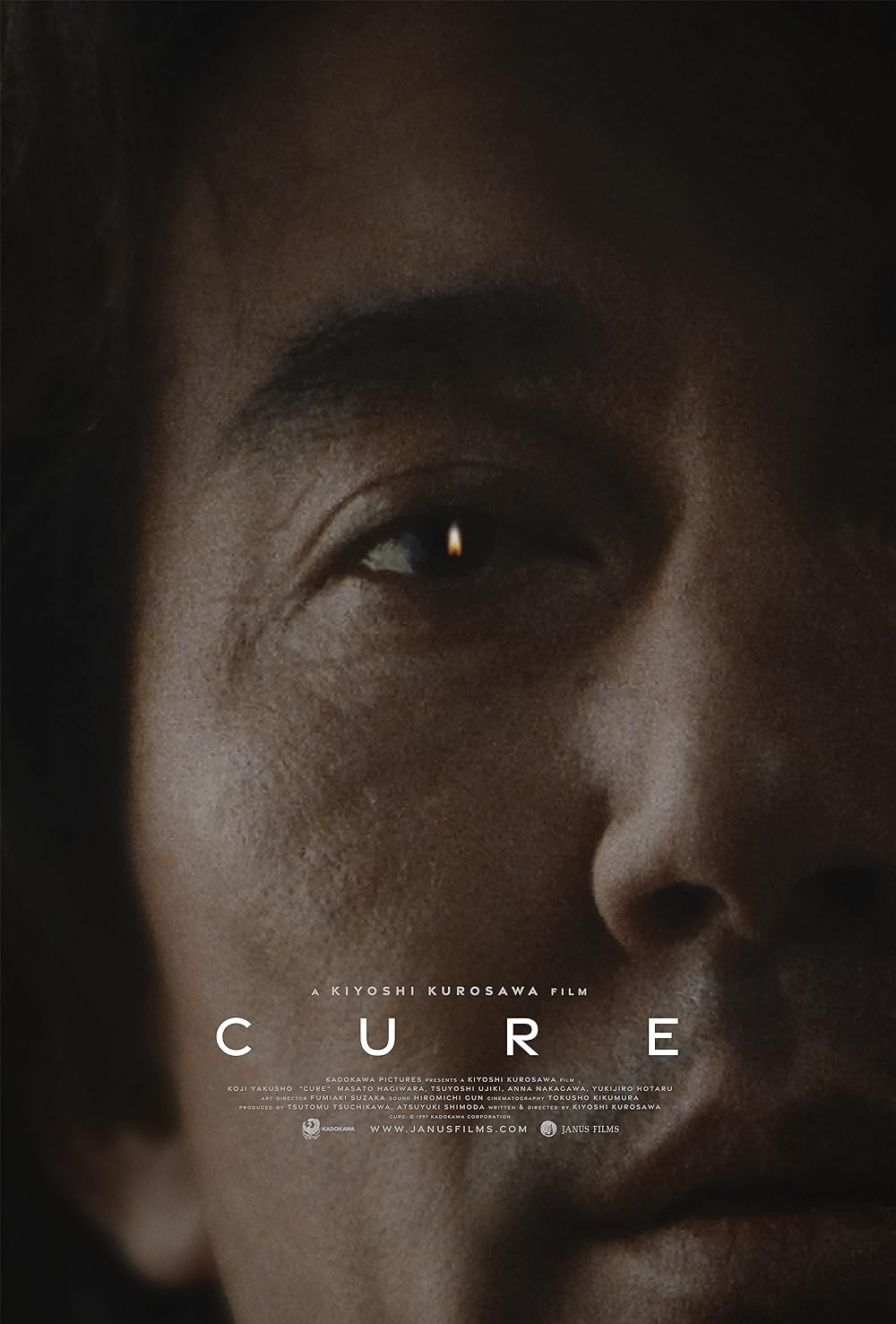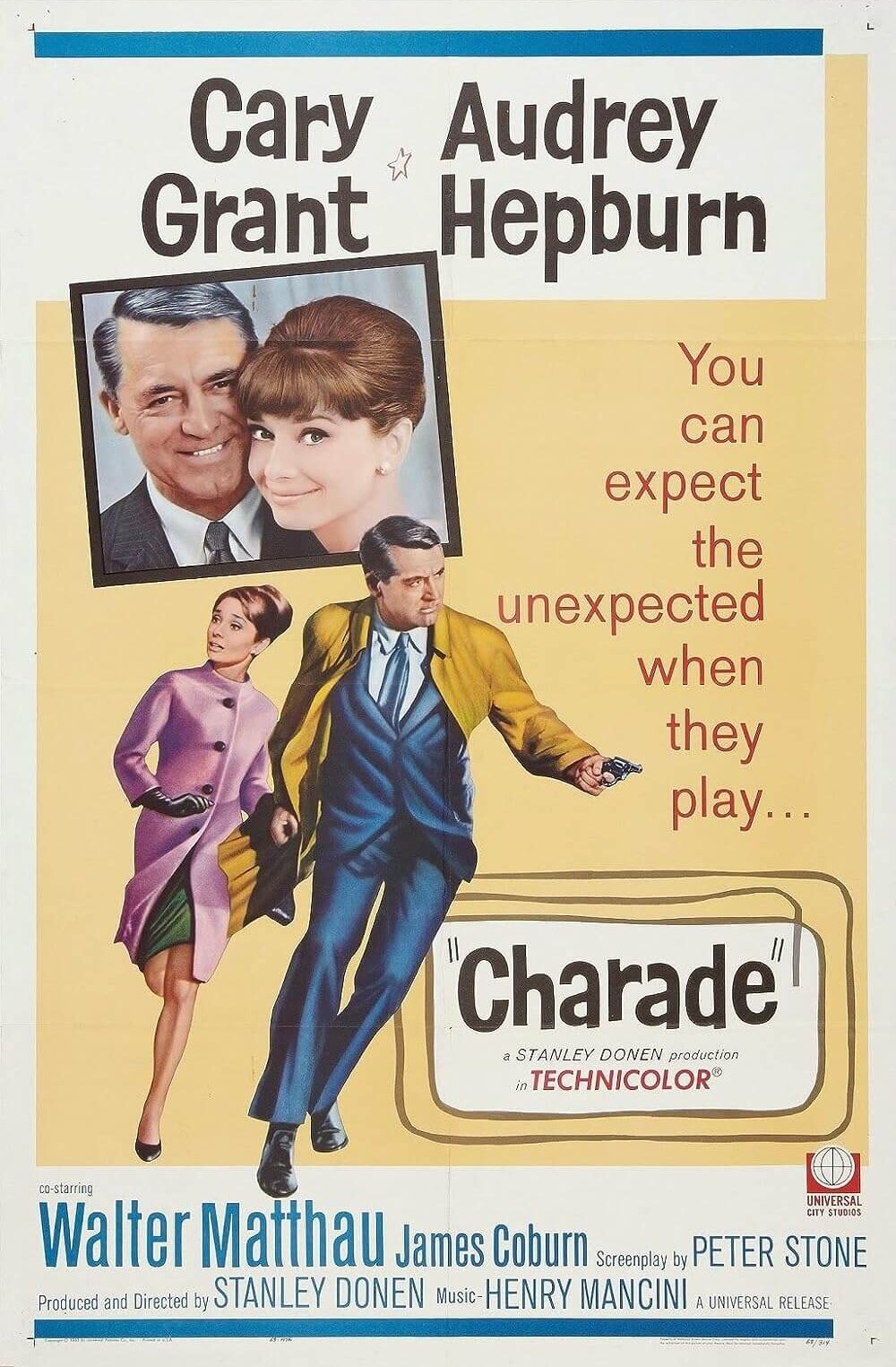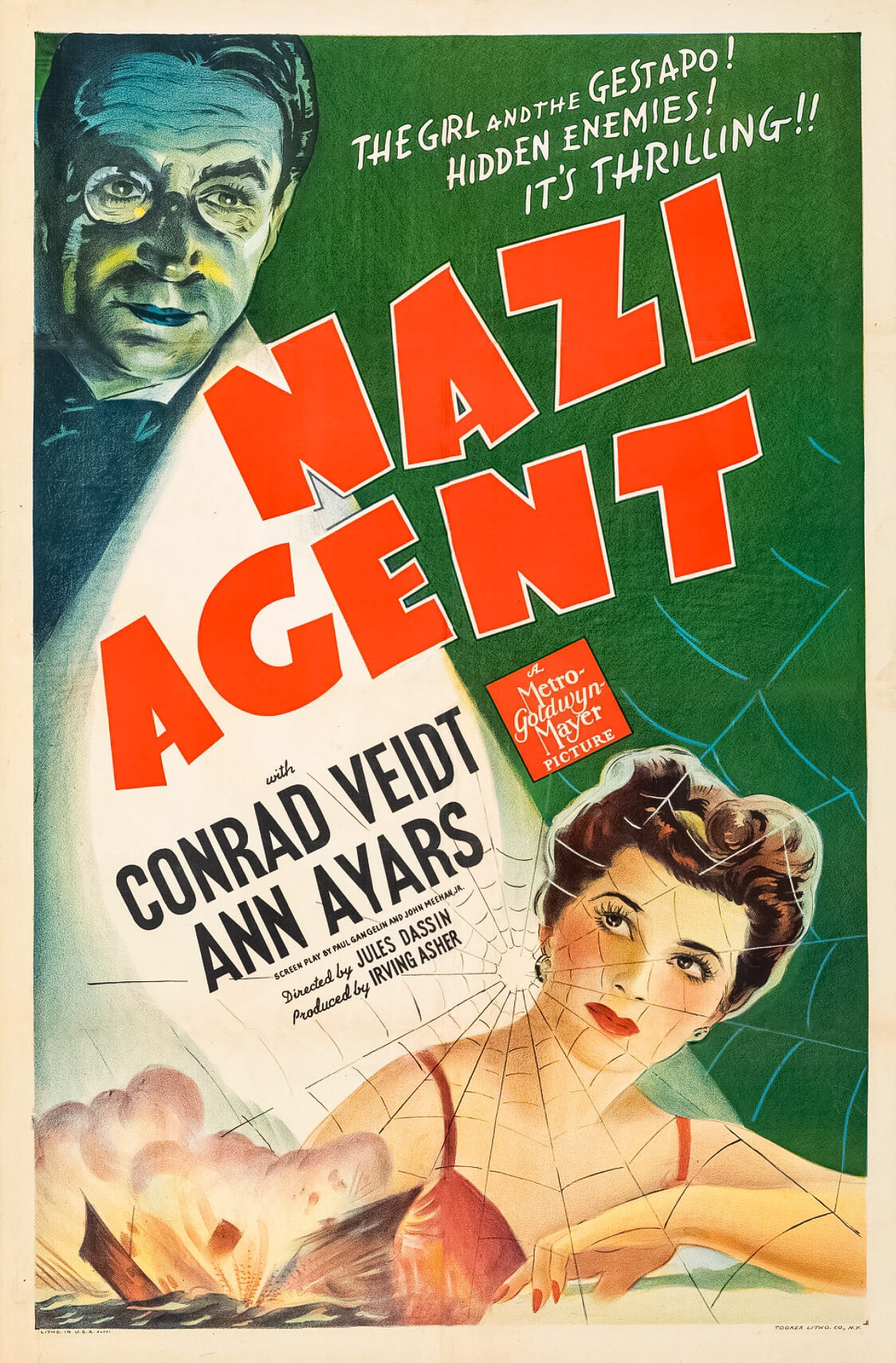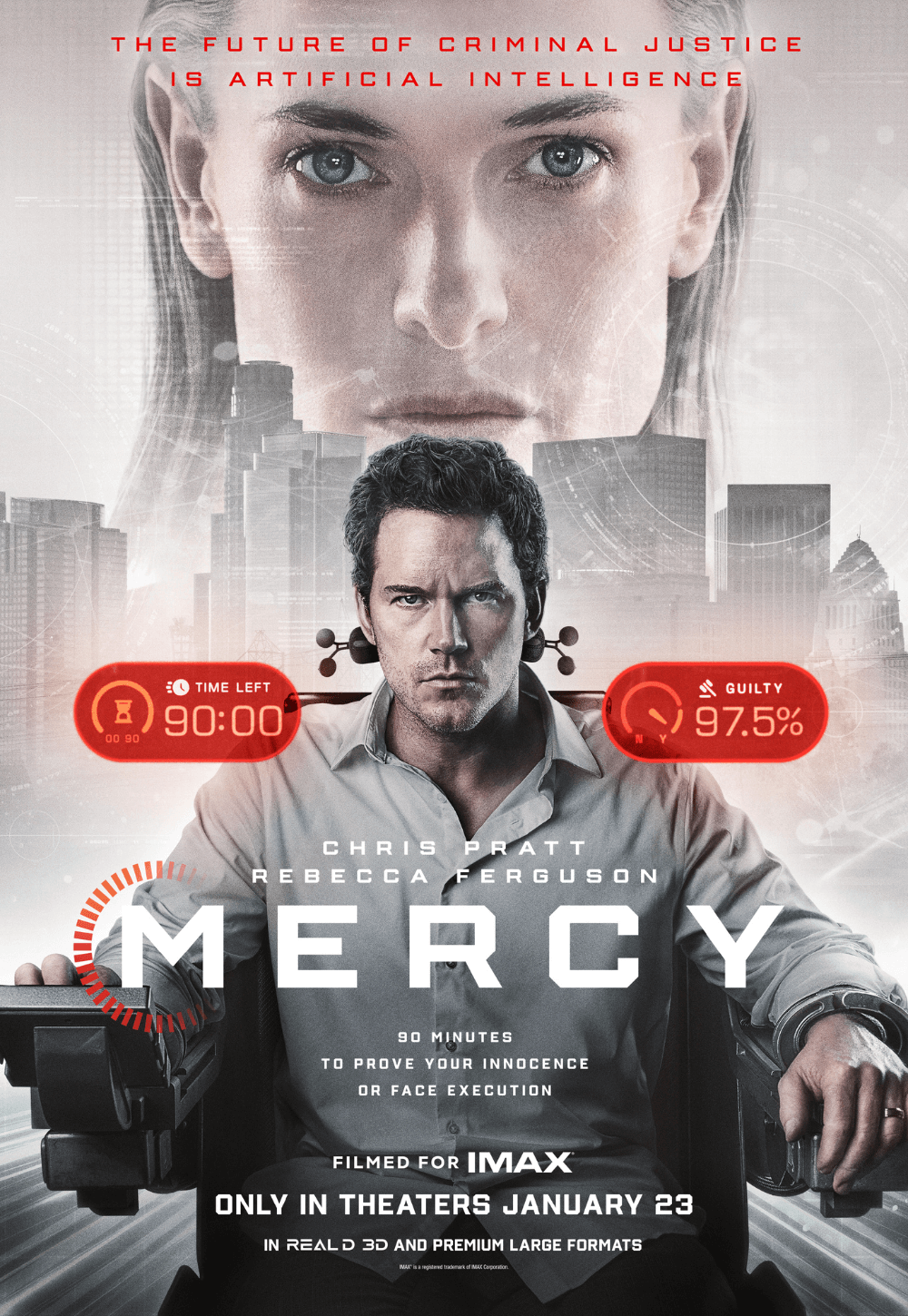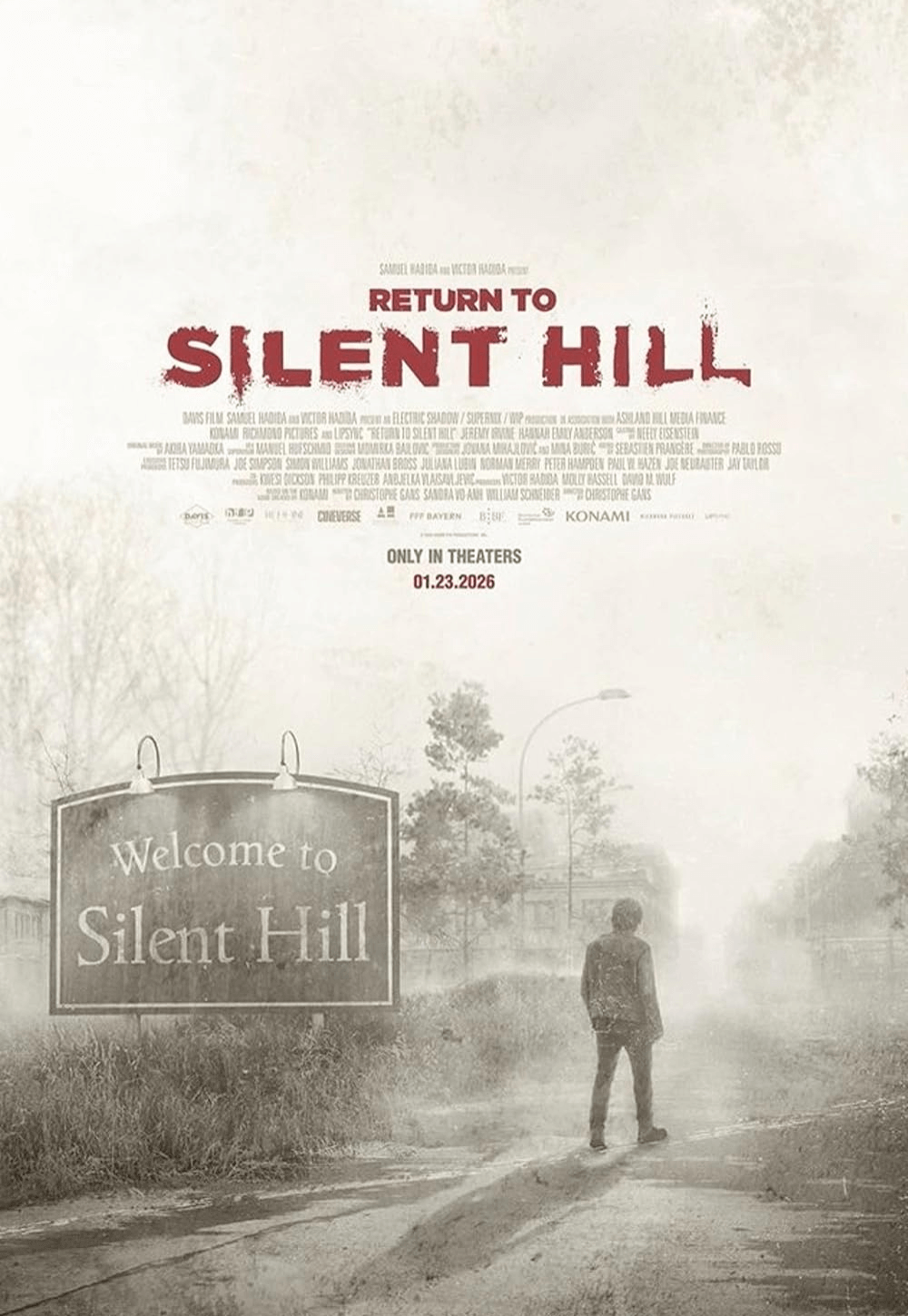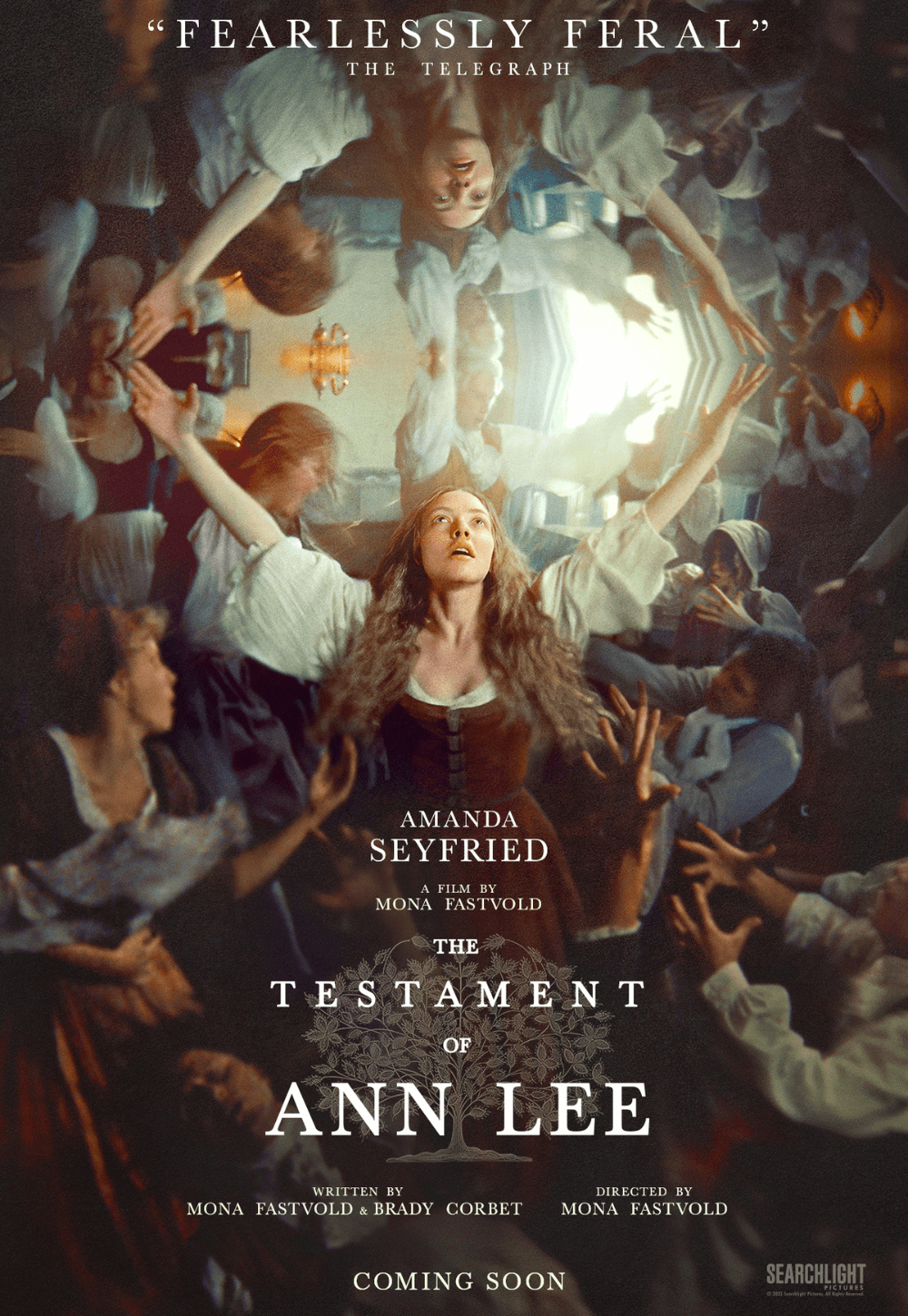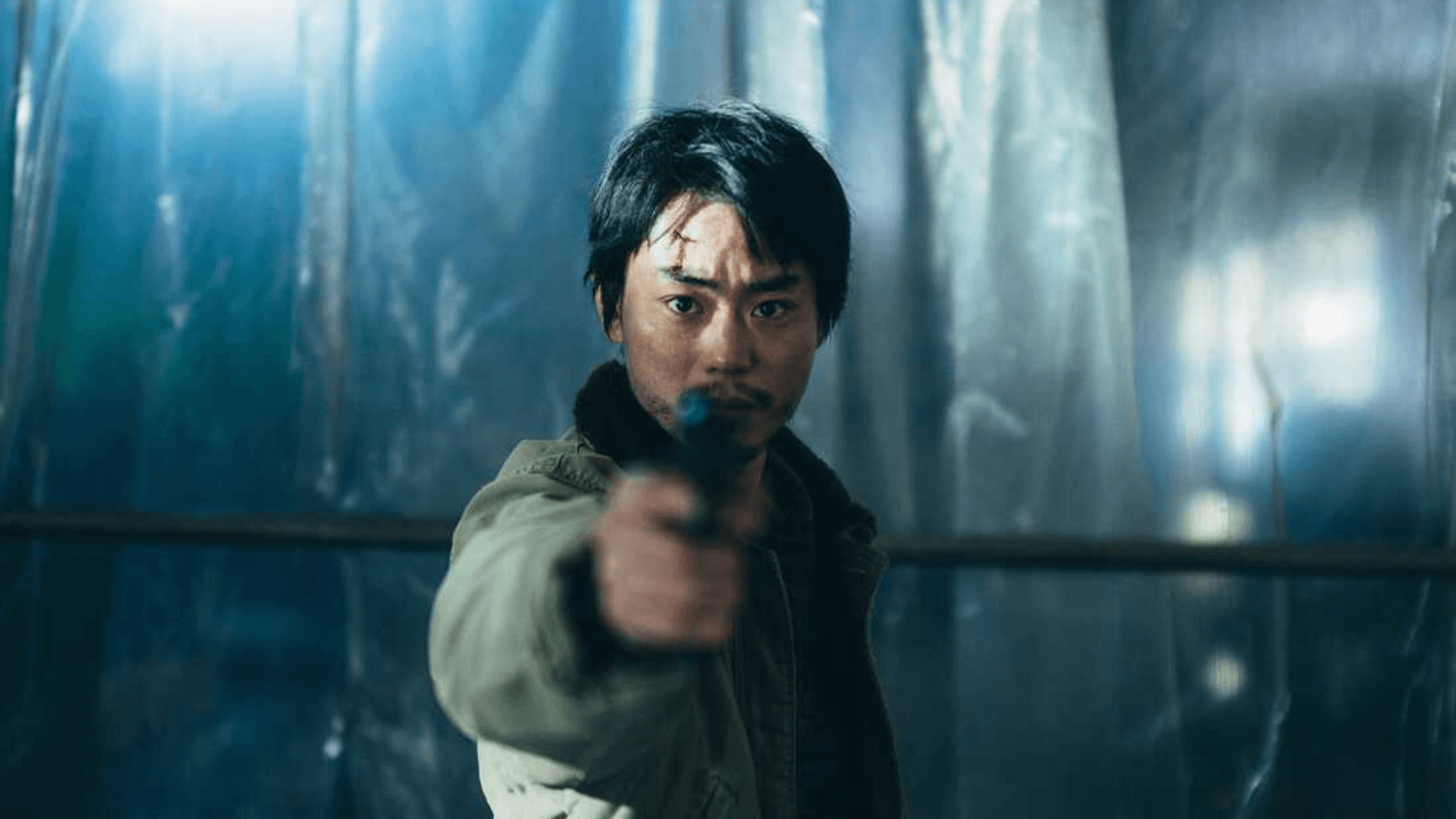
Cloud
By Brian Eggert |
Note: This review was originally posted on July 18, 2025. Janus Films and Sideshow’s limited release of Cloud expands to other markets, including Minnesota, beginning August 8.
Kiyoshi Kurosawa warns that something dreadful awaits those who prey on thrifty, unassuming online shoppers in Cloud, an unpredictable thriller about a shady reseller whose minor crimes come back to haunt him. Kurosawa, the Japanese director whose approach to genre adheres to no rulebook except his own, navigates a predatory capitalist underworld with a masterful control of tone. What begins as a portrait of a small-time grifter unravels into a study of how even the most modest offenses accumulate into something more nefarious—a transformation from petty transgressions into an all-consuming and inescapable criminal enterprise. Kurosawa considers how the desire for profit—or on a much more basic level, survival—instills a rampant need to exploit bargain shoppers for everything they’re worth. Cloud dissects how a world in which income means life gives way to opportunistic self-preservation. And yet, the corruptive nature of capitalism, and those caught in its wake, perpetuate a system of irresistible deals and prospective dividends. From this framework, where Kurosawa crafts both an actionized neo-noir and a brooding portrait of a rapacious online marketplace, Cloud takes aim at a morally doomed system.
This director already made an essential film involving the internet with 2001’s Pulse, about ghosts entering the living world via a web-based conduit. Cloud also sees two worlds intersect when initially faceless online consumers seek revenge against a reseller in the real world. The director introduces the film’s protagonist (the term “hero” does not apply), named Ryosuke Yoshii (Masaki Suda), as he negotiates with an older couple about their price for medical devices. Downplaying their value and overstating the cost of disposal if they do not sell, he high-pressures them into selling units at a low price, and then he turns around and sells them online for a 95% profit margin. Posting his goods under the username “Ratel”—a badger-like animal in the weasel family, a pointed choice—Ryosuke watches his inventory screen of available items, eager for them to turn red for “sold.” Meanwhile, he scours the web and local retailers for deals, having accumulated enough wealth to quit his job at a clothing factory and move to an isolated house to resell full-time with his materialistic girlfriend, Akiko (Furukawa Kotone).
Kurosawa’s films often portray people whose motivations remain obscure and whose actions prove extreme, compelled by sometimes practical, sometimes unearthly, drives toward groupthink (see the director’s brainwashed alien-invasion scenario in his 2017 feature, Before We Vanish). In Cloud, one almost roots for Ryosuke to sell his overpriced inventory and continue his idyllic independent lifestyle. But Ryosuke’s crooked little business soon gathers the attention of a small but angry online community of posters who want revenge on Ratel for selling them bogus designer handbags or similar products. Besides his customers, he also burns bridges with his former boss (Yoshiyoshi Arakawa) and a fellow reseller (Masataka Kubota) who’s cooking up a new auction site. And after a not-unjustified sense of paranoia compels him to move—a dark figure follows him on a bus; he finds a dead rat left on the stairs to his apartment; someone places a wire across a path to knock him off his scooter—he realizes they know where he lives, and they plan to do him harm.
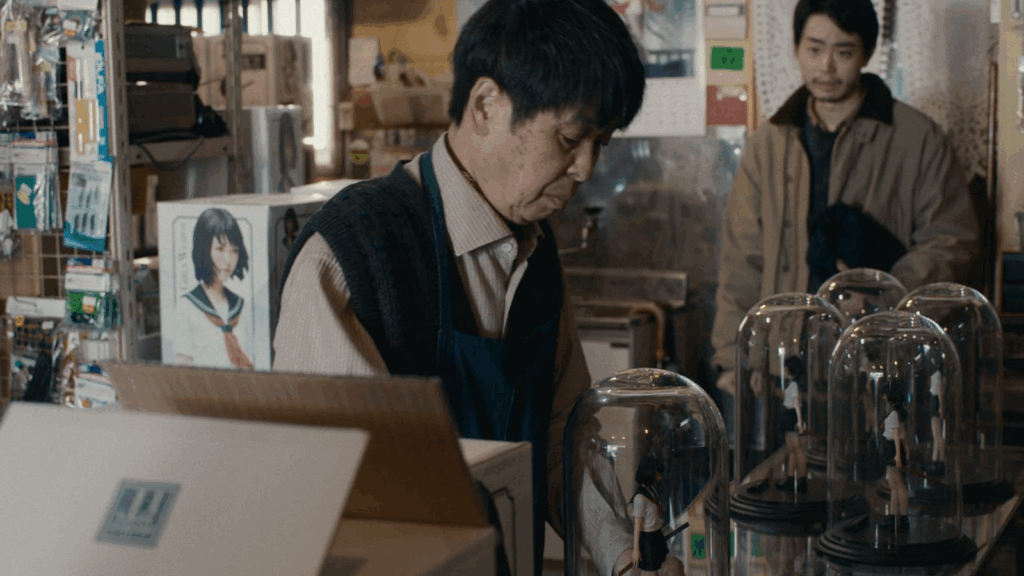
“Am I… so bad?” Ryosuke wonders. Around the same time, several men—some he recognizes, others he doesn’t, and one in a creepy mask reminiscent of a character in Hiroshi Teshigahara’s The Face of Another (1966)—enter his home to carry out a merciless revenge. Kurosawa effortlessly shifts the tone into an intense tale of vengeance, albeit without taking the focus off Ryosuke. One cannot help but feel for him as he scatters like, well, a weasel, desperate to escape a contingent of familiar faces determined to have satisfaction, including two particularly unhinged transformations amid characters Kurosawa introduced earlier. “You’re about to enter a world of pain,” says one of his captors, after gassing and prepping Ryosuke for a blowtorch. But the reseller has an unlikely compatriot in Sano (Daiken Okudaira), his curiously devoted and well-equipped assistant with ties to the Yakuza.
Within the guise of a modern thriller, Kurosawa explores how online marketplaces and their consumer communities have real-life counterparts—and consequences. The internet provides a sense of detachment from reality, allowing people to make decisions that they might not make in a physical setting. It supplies a false arena for people to express and indulge their worst impulses, while seemingly shielding them from real-world consequences. But that shield is an illusion in Kurosawa’s view. Cloud depicts how online spaces often amplify the most predatory behaviors, causing them to spill out from cyberspace. His film dramatizes the erosion of morality among those who gratify themselves online with dubious capitalist systems, leading to a collision between the virtual and the real. Whether it’s hate groups that meet in a virtual environment before organizing in person, or web-based retailers whose businesses have led to the shutdown of brick-and-mortar stores, Kurosawa sees the dangerous interconnection between the internet and our real lives.
Although the last third involves an exciting chase and shootout, Cloud cannot be called an escapist piece of entertainment—the final moments are far too haunting and ethereal for that. In an unlikely and somewhat funny series of violent developments, Ryosuke and Sona consider their future together in business. Sona wants him to keep reselling online. “Where will that get me?” Ryosuke wonders, looking out at the green hell that awaits him—a cinematic non sequitur that introduces a surreal visual flourish. It’s all the more telling that Kurosawa’s characters resort to violence for what, in Yen, represents a few thousand US dollars. The desperation and low financial stakes recall neo-noirs such as the Coen brothers’ Blood Simple (1984), John Dahl’s Red Rock West (1993), and William Friedkin’s Killer Joe (2011), where the need for an easy, if modestly sized payday overwhelms every other concern. By the end, Kurosawa’s inspired Cloud portrays an online reseller economy on a ruinous path, leading nowhere but to the corruption of one’s self.
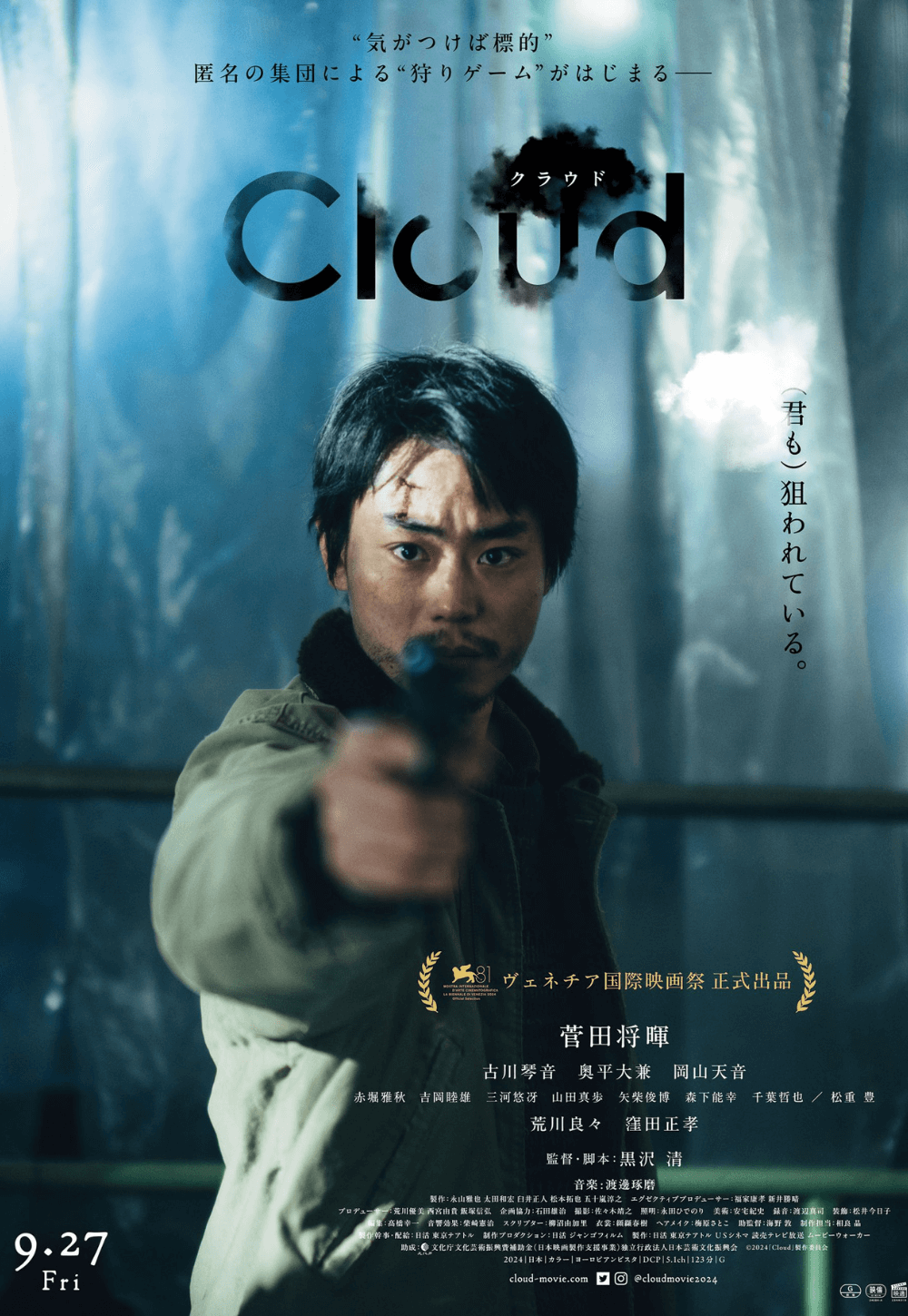
Thank You for Supporting Independent Film Criticism
If the work on DFR has added something meaningful to your love of movies, please consider supporting it.
Here are a few ways to show your support: make a one-time donation, join DFR’s Patreon for access to exclusive writing, or show your support in other ways.
Your contribution helps keep this site running independently. However you choose to support the site, please know that it’s appreciated.
Thank you for reading, and for making this work possible.
Brian Eggert | Critic, Founder
Deep Focus Review


